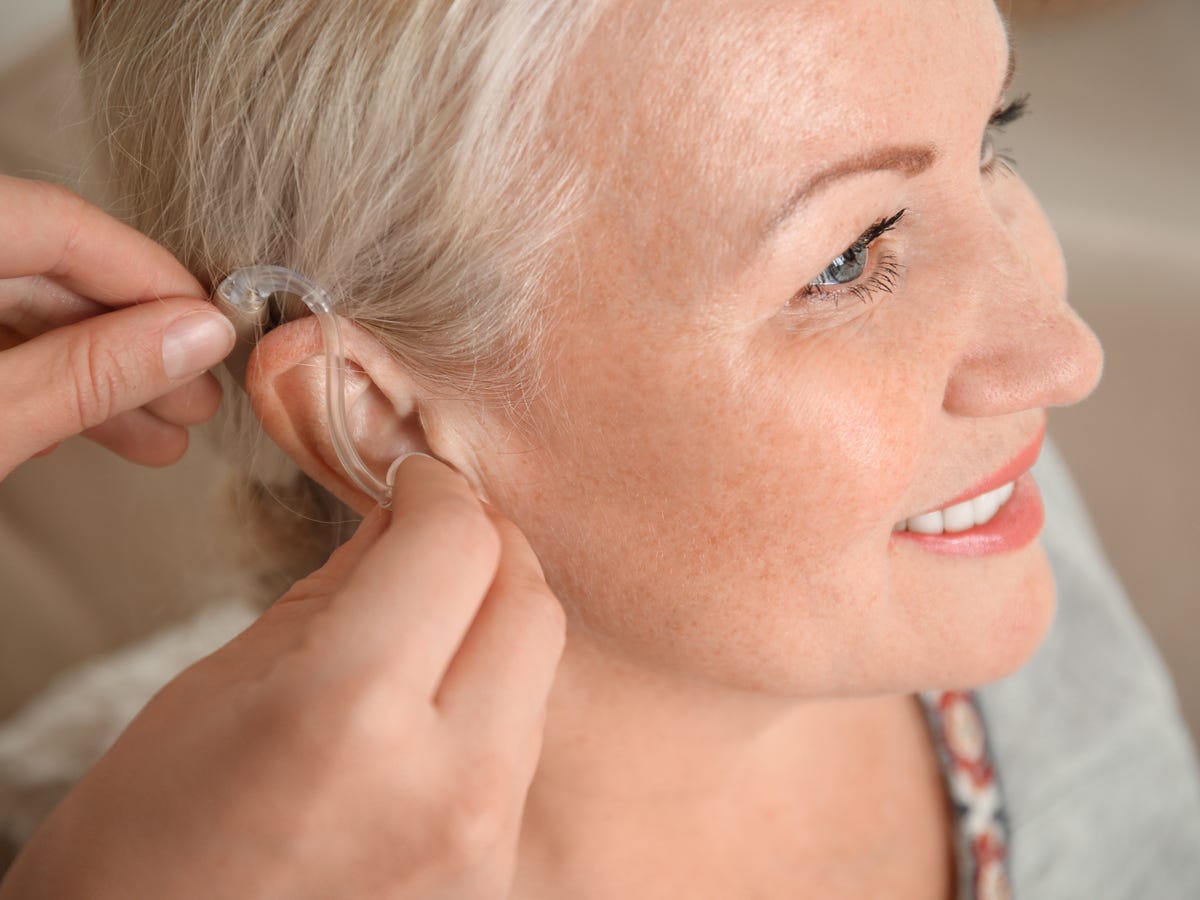Hearing aids could help people live longer, new study finds
Surprisingly, only one in 10 people who could benefit from hearing aids actually uses them, according to recent research findings.

Surprisingly, only one in 10 people who could benefit from hearing aids actually uses them, according to recent research findings. (CREDIT: Shutterstock)
Hearing loss is a pervasive issue in the United States, affecting around 40 million American adults. Surprisingly, only one in 10 people who could benefit from hearing aids actually uses them, according to recent research findings.
As we embark on a new year, a groundbreaking study from Keck Medicine of USC, published in The Lancet Healthy Longevity, suggests that making a resolution to wear hearing aids could be a life-extending decision for those who need them.
Dr. Janet Choi, an otolaryngologist at Keck Medicine and the lead researcher of the study, revealed the remarkable results, saying, "We found that adults with hearing loss who regularly used hearing aids had a 24% lower risk of mortality than those who never wore them. These results are exciting because they suggest that hearing aids may play a protective role in people's health and prevent early death."
Kaplan-Meier survival estimates by severity of hearing loss. Estimates categorised according to speech-frequency pure-tone average in better hearing ear (normal:
While previous research has demonstrated that untreated hearing loss can lead to a reduced lifespan, as well as other adverse outcomes like social isolation, depression, and dementia, little was known about whether hearing aids could mitigate the risk of death.
This study represents the most comprehensive analysis to date on the relationship between hearing loss, hearing aid use, and mortality in the United States.
To conduct this extensive research, Dr. Choi and her team analyzed data from the National Health and Nutrition Examination Survey, spanning from 1999 to 2012. They identified nearly 10,000 adults aged 20 and older who had undergone audiometry evaluations to assess their hearing abilities and completed questionnaires regarding their hearing aid usage.
Related News
The researchers then monitored their mortality status over an average follow-up period of ten years after the evaluations.
Among the 1,863 adults identified with hearing loss, 237 were regular hearing aid users, defined as those who wore their aids at least once a week for at least five hours or half the time.
In contrast, 1,483 individuals were categorized as never-users of hearing devices. Subjects who reported wearing hearing aids less than once a month or even less frequently fell into the non-regular users category.
The study's most striking finding was the consistent 25% difference in mortality risk between regular hearing aid users and never-users, regardless of various factors such as the degree of hearing loss, age, ethnicity, income, education, and other demographics, as well as medical history.
Notably, there was no discernible difference in mortality risk between non-regular users and never-users, indicating that occasional hearing aid use may not confer any life-extending benefits.
While the research did not delve into the precise reasons why hearing aids may contribute to longer life, Dr. Choi pointed to recent studies linking hearing aid use to reduced levels of depression and dementia.
She speculates that the improved mental health and cognitive function associated with better hearing may enhance overall health and ultimately extend lifespan.
Despite these promising findings, Dr. Choi acknowledges that various obstacles, including cost, stigma, and difficulty finding well-fitting and functional devices, deter many individuals from using hearing aids. Dr. Choi herself understands these challenges intimately, as she was born with hearing loss in her left ear and only began using a hearing device in her 30s, after a years-long search for an effective solution.
Prevalence of comorbidity among people with and without hearing loss, by age. HL, Hearing loss. (CREDIT: eClinical Medicine)
In her ongoing efforts to improve hearing care, Dr. Choi is developing an AI-driven database that categorizes hearing aid options and tailors them to individual patient needs. She also advocates for larger-scale studies to further explore the link between regular hearing aid use and a reduced mortality risk, as well as to promote comprehensive hearing care.
As we step into the new year, it may be time for individuals who require hearing aids to consider adding this resolution to their list, potentially unlocking the secret to a longer, healthier life.
For more science and technology stories check out our New Discoveries section at The Brighter Side of News.
Note: Materials provided above by the The Brighter Side of News. Content may be edited for style and length.
Like these kind of feel good stories? Get the Brighter Side of News' newsletter.



